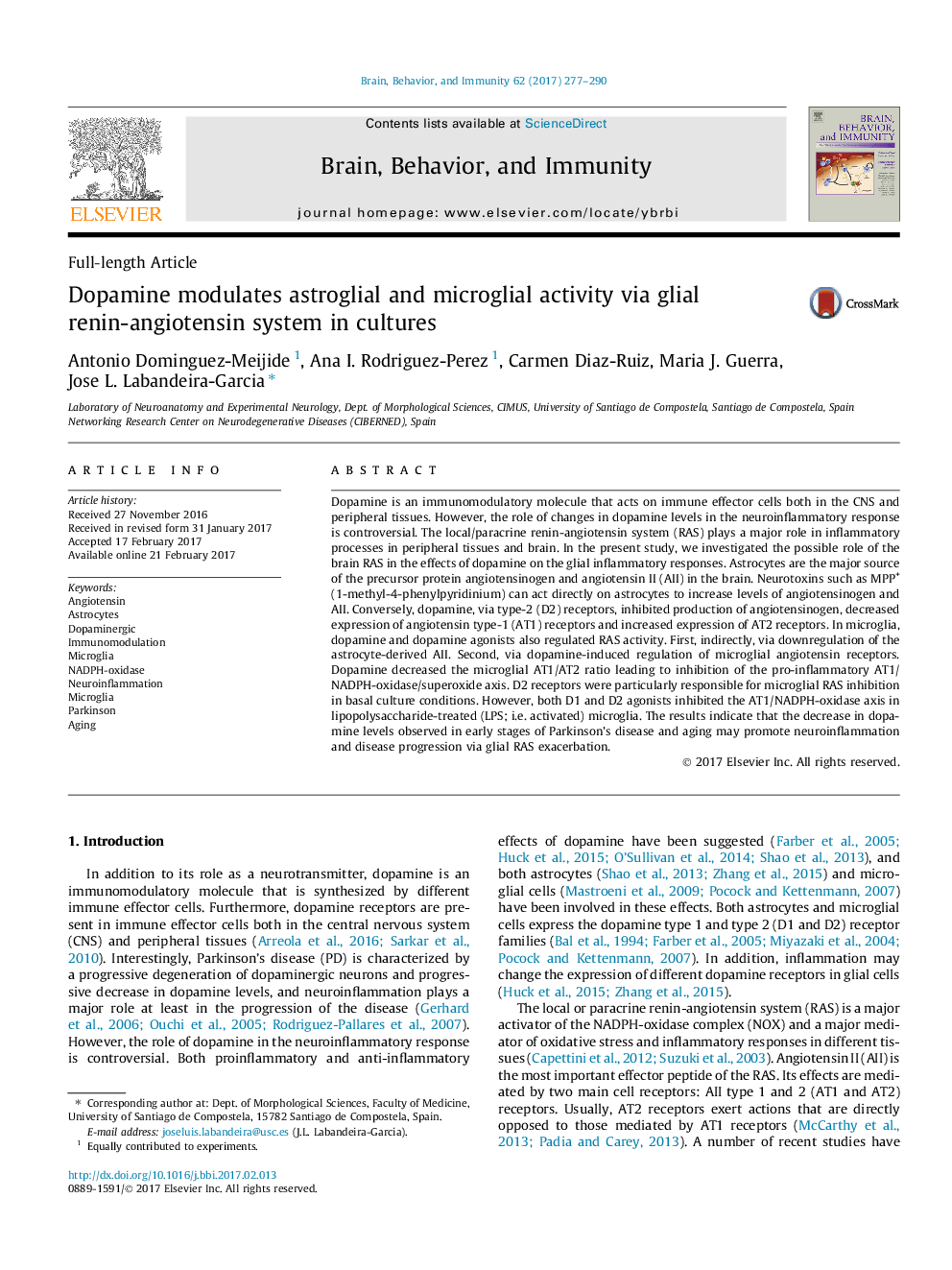| Article ID | Journal | Published Year | Pages | File Type |
|---|---|---|---|---|
| 5040801 | Brain, Behavior, and Immunity | 2017 | 14 Pages |
â¢Brain angiotensinogen and angiotensin II (AII) are mostly produced by astrocytes.â¢In astrocytes, dopamine, via D2 receptors, inhibits production of angiotensinogen.â¢In microglia, dopamine inhibits the AII/NADPH-oxidase pro-inflammatory axis.â¢Both D1 and D2 agonists inhibited the AII/NADPH-oxidase axis in activated microglia.â¢The decrease dopamine levels may promote neuroinflammation and neurodegeneration.
Dopamine is an immunomodulatory molecule that acts on immune effector cells both in the CNS and peripheral tissues. However, the role of changes in dopamine levels in the neuroinflammatory response is controversial. The local/paracrine renin-angiotensin system (RAS) plays a major role in inflammatory processes in peripheral tissues and brain. In the present study, we investigated the possible role of the brain RAS in the effects of dopamine on the glial inflammatory responses. Astrocytes are the major source of the precursor protein angiotensinogen and angiotensin II (AII) in the brain. Neurotoxins such as MPP+ (1-methyl-4-phenylpyridinium) can act directly on astrocytes to increase levels of angiotensinogen and AII. Conversely, dopamine, via type-2 (D2) receptors, inhibited production of angiotensinogen, decreased expression of angiotensin type-1 (AT1) receptors and increased expression of AT2 receptors. In microglia, dopamine and dopamine agonists also regulated RAS activity. First, indirectly, via downregulation of the astrocyte-derived AII. Second, via dopamine-induced regulation of microglial angiotensin receptors. Dopamine decreased the microglial AT1/AT2 ratio leading to inhibition of the pro-inflammatory AT1/NADPH-oxidase/superoxide axis. D2 receptors were particularly responsible for microglial RAS inhibition in basal culture conditions. However, both D1 and D2 agonists inhibited the AT1/NADPH-oxidase axis in lipopolysaccharide-treated (LPS; i.e. activated) microglia. The results indicate that the decrease in dopamine levels observed in early stages of Parkinson's disease and aging may promote neuroinflammation and disease progression via glial RAS exacerbation.
Graphical abstractDownload high-res image (124KB)Download full-size image
